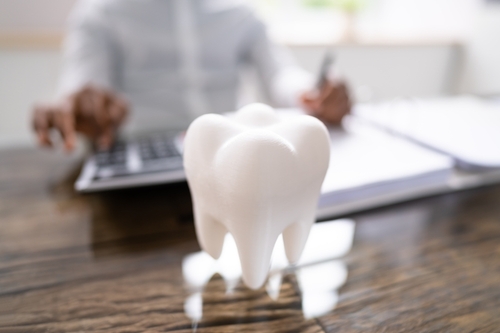For many people, dental procedures can sometimes feel like a tug-of-war between maintaining your oral health and managing your budget. With daily expenses increasing, it’s easy to push necessary treatments, like dental implants, to the back of our priority list. However, these crucial procedures may be more attainable than anticipated. Your dental implants may be tax deductible, potentially easing the cost burden and making dental care more feasible. This tax benefit can provide some relief, helping to make necessary dental treatments a more viable option for those concerned about expenses.
Dental Implants: Navigating the Tax Deductible Benefits for Your Smile
Dental implants may offer a financial silver lining through their tax-deductible potential. The IRS recognizes certain medical and dental expenses as deductible from taxable income, provided they are essential for the diagnosis, treatment, or prevention of disease. A dental professional typically recommends dental implants to maintain or improve oral health. For this reason, they may be a qualifying medical expense.
You may deduct these expenses from your taxable income if your total medical and dental expenses exceed 7.5% of your adjusted gross income (AGI). However, you must itemize your medical expenses on your tax return for dental implants to be deductible.
It is important to note that this deduction is strictly for expenses NOT covered by insurance or reimbursed in any form. Essentially, it allows you to deduct the costs you’ve personally paid.
How Do I Determine if My Dental Implants Are Tax Deductible?
At first glance, the details about the tax-deductible potential of dental implants might seem loaded with complex terms. If you’re finding the specifics a bit murky, let’s simplify them so you can understand what this means for you and your finances.
- Understand your AGI (Adjusted Gross Income): AGI is the total money you earn in a year minus specific deductions allowed by the IRS. You calculate this yearly on your tax return (line 11 of Form 1040).
- Determine your medical expenses: Include all healthcare costs you’ve paid over the year, including dental implants.
- Calculate the 7.5% threshold: Calculate 7.5% of your AGI to determine your threshold. You can deduct any medical and dental expenses over this dollar amount.
- File your tax return with itemized deductions: Make sure you itemize your deductions to include your dental implant and other medical expenses above the 7.5% threshold of your AGI.
It’s wise to seek guidance from a tax professional, especially if you are unfamiliar with itemizing your deductions. Tax laws can be intricate, and personal financial situations vary greatly. A qualified tax advisor or accountant can provide personalized advice based on your circumstances.
Maximizing Tax Deductions With Dental Implants
Let’s consider an example to clarify how tax deductions for medical expenses work. Say you’ve recently completed your implant procedure and have out-of-pocket costs. If you are considering itemizing your deductions, there are some steps you should take. First, you need to know your adjusted gross income (AGI). For this example, let’s say your AGI is $80,000. The IRS allows you to deduct medical expenses that exceed 7.5% of your AGI. So, let’s calculate that threshold: 7.5% of $80,000 = $6,000.
This $6,000 acts as your baseline. Only unreimbursed medical expenses above this amount can be deducted from your taxable income. Next, consider that throughout the year, your total qualifying medical expenses, including the cost of dental implants, amounted to $20,000. Here’s how you determine what portion is deductible: $20,000 (total expenses) – $6,000 (threshold) = $14,000. This means you can deduct $14,000 from your taxable income. If your total deduction amount is greater than the standard deduction, it may be worthwhile to itemize your deductions.
Exploring Your Dental Implant Options
With this opportunity, you might be exploring your options further. If you need to replace missing teeth, dental implants are an ideal solution. They are titanium posts that act as the tooth root. They are then topped with a crown, bridge, or denture that mimics the appearance of your natural teeth. Traditional implants serve as a sturdy foundation, but they measure around 5 millimeters in diameter. This larger size can pose a problem for patients who have limited jawbone density because the procedure typically requires bone grafting surgery.
Like their traditional counterparts, mini dental implants replace missing teeth. However, at less than 3 millimeters in diameter, Dr. Bashi can place these narrow implants using a minimally invasive technique. This is an appealing option for patients to consider because they are also much quicker to place, significantly reduce healing time, and cut costs.
Discover the Benefits of Mini Dental Implants Today
Understanding the potential tax benefits of dental implants can help ease financial burdens come tax season. For personalized advice on what tax deductions you might qualify for, consider consulting with a tax advisor.
If worries about costs have been holding you back from getting dental work done, it’s time to rethink your options. Contact Best Care Dental to learn how mini dental implants can transform your smile without breaking the bank.

